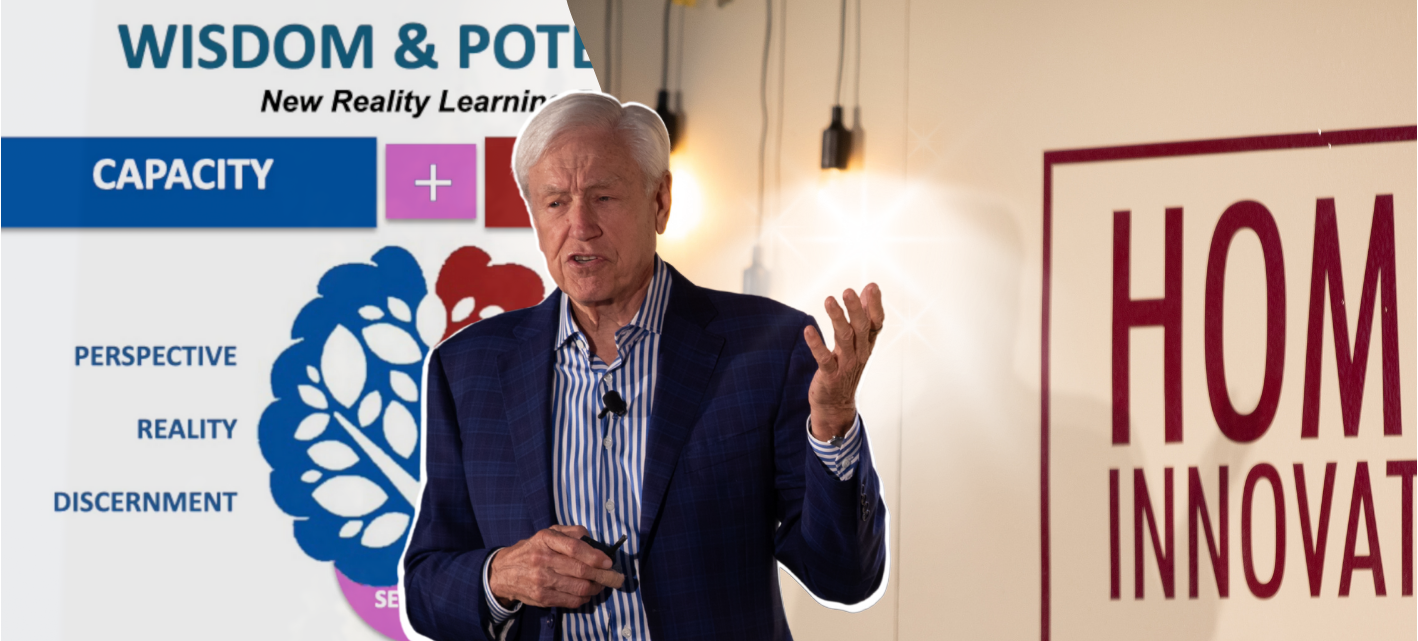Editor's note: This piece is an excerpt from our recently published report, 'The Future of Home Care: 9 Innovators Share Their Predictions for the Next Decade'.
Home health is an essential and growing part of the healthcare continuum, enabling millions of patients to receive quality care and recover in the comfort of their homes. However, the industry faces challenges today that require innovation to overcome.
From modernizing reimbursement strategies to streamlining back-office functions to smarter advocacy efforts, Summer Napier offers a compelling vision of home health’s future. While political, regulatory, and technological obstacles exist, she believes overcoming them will cement home health’s indispensable role in the years ahead.
The Founder and CEO of Healing Hands Healthcare provided some unique takes on the industry's future, thoughtfully assessing how providers can drive positive change over the next 5-10 years.
Transitioning to Value-Based Care
According to Napier, all payers must shift toward value-based and risk-based contracting models to incentivize appropriate care settings. Under today’s fee-for-service system, hospitals and doctors lack disincentives for directing patients to high-cost ER or inpatient care when lower-cost options like home health may be as or more effective – and they usually are.
"I think for us to be where we need to be, all payers have to go to a value- and risk-based contracting model,” she said. “Looking at the future of (those models), payers need to measure them objectively, not subjectively.”
Napier stressed that hospitals and physicians must face financial consequences for inappropriate admissions. Only then can home health truly flourish as the preferred discharge option for eligible patients. Outcomes-driven value-based arrangements will better align incentives around keeping people in their homes.
“The aim should be to align financial incentives with the goal of providing care in the most suitable and cost-effective setting,” she said. “More often than not, that’s the home.”
The Need for Coordinated Advocacy
In Napier’s view, home health also lacks lobbying clout compared to “giant” industries like hospital systems and pharmaceutical companies. The fragmented nature of home care, with many small independent providers, dilutes its influence.
To strengthen our voice, Napier envisions a powerful national home health committee that unites the industry behind shared legislative goals. This committee should offer free membership, ensuring even small providers can participate.
CMS reimbursement rates spark widespread anxiety each year. A unified committee could champion local fundraising and awareness campaigns, fueling national efforts to resist cuts that threaten the care we provide.
With a coordinated advocacy effort, home health agencies can educate legislators on its immense value, shaping policies that favor care in the home. Bolstering home health’s reputation in legislators’ minds will take a concerted industry-wide campaign.
"I think that to get to where we want to go, we have to have a true plan,” she said. “We need to really come together and figure it out, getting a nationwide committee together to get things done to go up against some of these larger players and have a seat at the table. We deserve that face time to make our issues heard."
Data Sharing for True Care Coordination
Napier stressed the need for robust data sharing across providers for home health to deliver seamless transitional care. Interoperability can alert home health clinicians about medication changes, ER visits, or hospitalizations that may impact their patients’ status. Lacking real-time data from other settings leads to blind spots in care coordination.
While CMS touts interoperability, Napier argues it fails to actualize data exchange in practice. She believes a centralized records hub should compile patient data from all sources to optimize transitions.
"I think interoperability is a huge issue,” she said. “A lot of the issues we are seeing with patients heading back to the hospital is a lack of communication through a patient’s care continuum because systems don't talk."
In the future, outcomes-based reimbursement models can account for patients’ prior site of care and acuity level on their admission to home health. Seamless data exchange is critical for genuine care coordination, she said.
AI Documentation to Free Up Nurses
On the operations side, Napier sees AI documentation tools as a key opportunity to improve nursing efficiency. In the future, voice recognition software that translates visit notes will significantly ease administrative burdens, allowing nurses to focus their limited time on delivering care.
With nursing shortages a considerable industry challenge, AI assistants provide one route to maximizing nurses’ patient-facing hours. Other innovations, like remote patient monitoring, also have the potential to aid productivity and oversight, she said.
"Our nurses have so much to do and are tired,” she said. "I see a future where nurses’ notes on a patient are automatically documented through voice recognition technology. This would help them focus their talents on what matters most: delivering compassionate, attentive care."
“Less burnout means happier employees. Happier employees make for better care.”
-------
Download the Full Report here.
Posted by
Join us!
The retreat for home health care and hospice leaders innovators.
May 17-19, 2026 | Palm Springs, CA


-1.jpg)


-2.png)


-2.png)


Comments